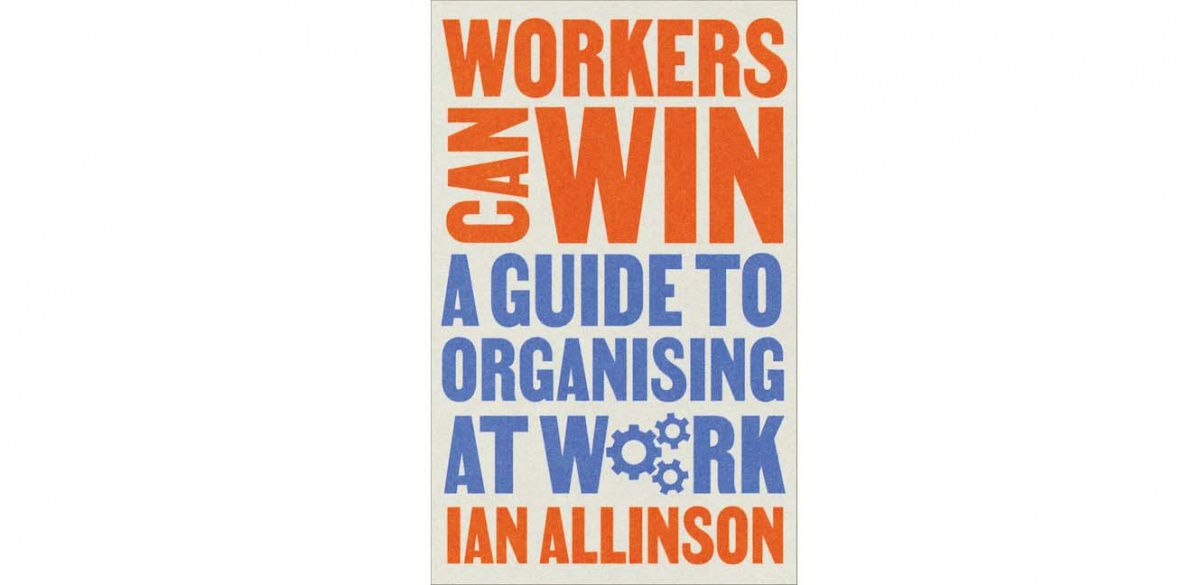This is the last article you can read this month
You can read more article this month
You can read more articles this month
Sorry your limit is up for this month
Reset on:
Please help support the Morning Star by subscribing here
Workers Can Win
by Ian Allinson
Pluto Press, £10
Ian Allinson, the author of Workers Can Win, is a well known and respected lay activist. He worked in IT for 25 years, mainly at Fujitsu, and made great strides in union organising in a very difficult environment.
He also played a leading role in shaping Unite’s newly created IT industrial sector (now Print & IT), so he is well placed to write an interesting book on workplace organising.
More controversially at the time, Allinson also stood for Unite general secretary on a “rank-and-file” ticket, in opposition to the United Left candidate, Len McCluskey.
Allinson’s lack of serious discussion of the need for broad left organisation in unions is therefore notable. Given that the book clearly goes beyond workplace organisation in its political reach, it is a significant omission.
Broad Lefts are essentially dismissed as “electoral machines.” Our view is that their role can and should be something far wider than that. But there are other problematic aspects of the book.
We do not think for example that Unite’s branch structures are “a secret guarded by the bureaucracy.” This is hyperbole which he generally avoids elsewhere in his discussion of trades union organisation.
Allinson correctly deals with the issues of “red unions,” but with an inflexible approach. And his analysis of the question of the split in the EETPU in the late 1980s is inevitably superficial due to the lack of space devoted to it.
He is right to mention the various new independent unions such as United Voices of the World (UVW), and also that much further discussion and analysis of their strengths and weaknesses is required within the movement.
Why an analysis of Solidarnosc in Poland was necessary, we are unclear and we found it extremely shallow. There was ample evidence at the time of how Solidarnosc would behave in government.
The book aspires, first, to reach workers who want to organise their own workplace, and, second, those outside individuals who want to help workers organise.
Unfortunately the real priorities appear to be reversed as the tone throughout the book is that of an individual organising a group of workers at arm’s length.This objective approach sometimes errs towards a patronising, preaching tone.
There is a long, possibly unnecessary, glossary at the start which defines common words such as “illegal,” and then defines more complicated phrases in isolation, rather than in the context in which they arise.
At one point the reader is told, “you’ll need to learn the language.” Yes you will, but if concepts can’t be explained in ordinary language, then they are just the bureaucratic nonsense which Allinson aspires to fight.
Not a bad thing in itself, but much in the book could not pretend to be new, and contains standard content that could be from any shop steward’s handbook from the late 1960s to now.
To this is added all the TUC organising academy doctrine, which in turn is based on Jane McAlevey (a senior policy fellow of the University of California, Berkeley Labour Centre and strikes correspondent for The Nation magazine).
A significant part of the book could be an official Unite publication, which of course is fine if you don’t have access to it elsewhere.
However, there are some excellent parts of the book which make it worth reading in spite of any shortcomings. The chapter on Industrial and Direct Action is particularly good because it appears to be where Ian is drawing on his own views and experiences.
There are also some really strong sections on rank-and-file organising and politics in the last couple of chapters which show original thought and analysis. With respect to Allinson, this is what he should be writing more about, and we look forward to reading it when and if he does!
Hugh Kirkbride and Evan Pritchard are Unite activists, members of the executive committee of the Communist Party of Britain, and members of Bristol and Manchester trades councils respectively.
Ian Allinson’s Workers Can Win: A Guide to Organising at Work will be launched today at 19:30 (BST) at the Mechanics Institute, Manchester, 103 Princess St., Manchester, M1 6DD









